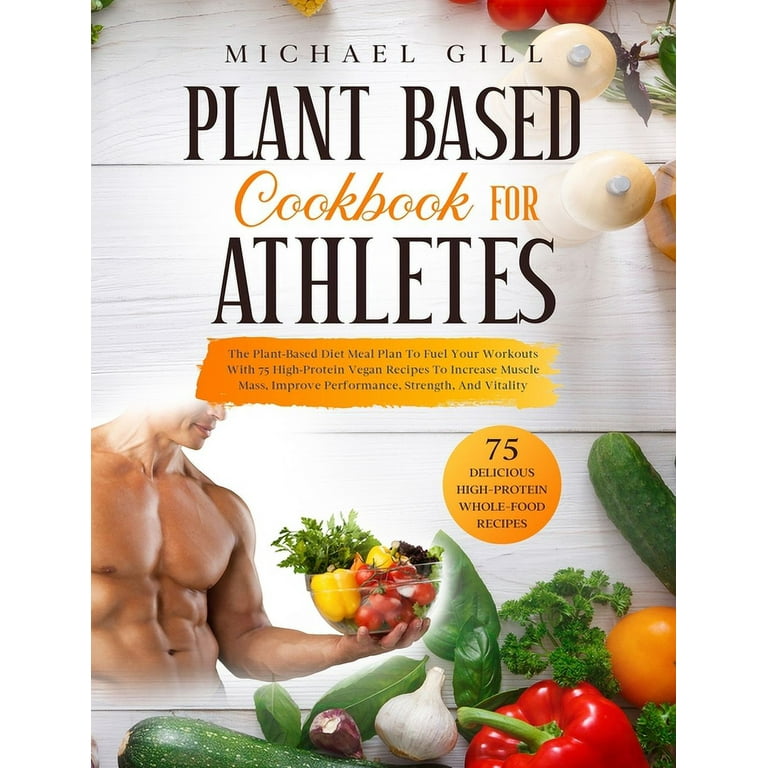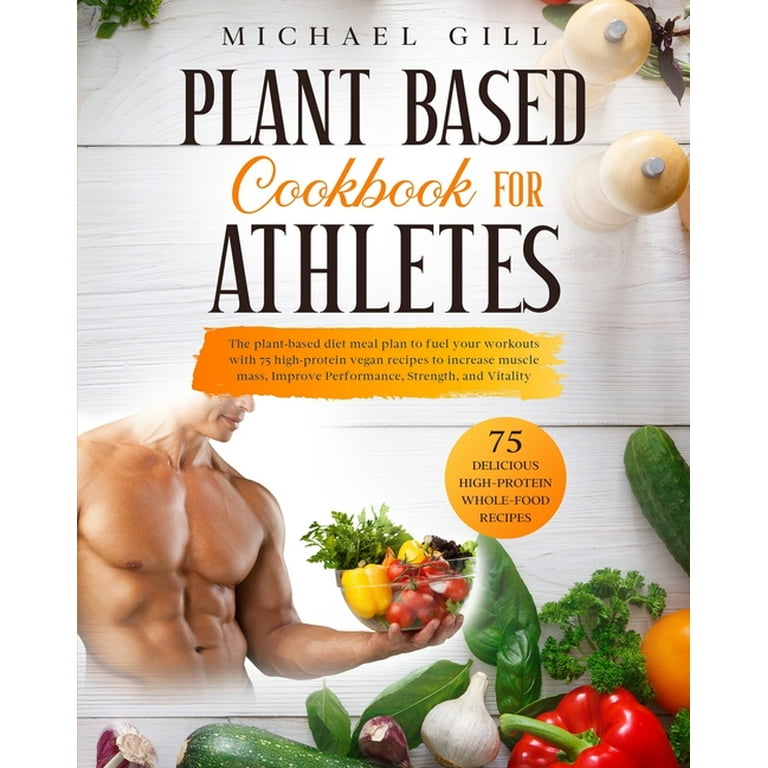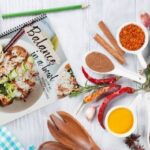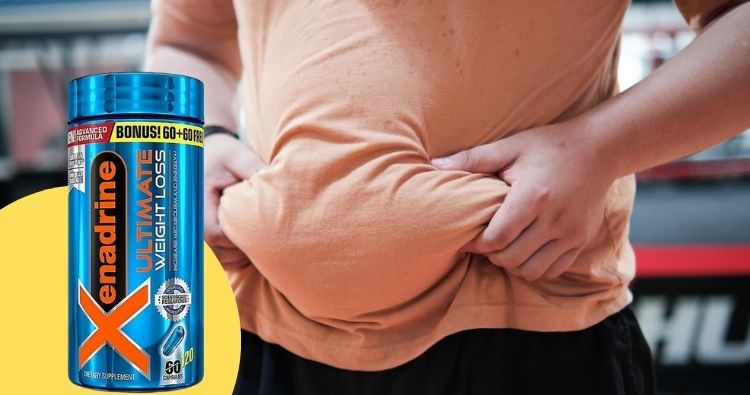High protein foods like lean meats, eggs, and legumes can aid in weight loss and muscle gain. Eating these protein-rich foods can help you shed pounds while building lean muscle mass.
Protein is an essential nutrient for weight loss and muscle gain. Including high protein foods in your diet can not only help you shed unwanted pounds but also promote the development of lean muscle mass. Whether you are looking to lose weight or improve your fitness level, incorporating protein-rich foods into your meals and snacks is crucial.
These foods not only provide the necessary nutrients to support muscle growth but also boost your metabolism, making it easier to burn calories and boost your energy levels. We will explore some of the best high protein foods that can help you achieve your weight loss and muscle building goals.

Credit: www.amazon.com
Benefits Of High Protein Foods
High protein foods are beneficial for weight loss and muscle gain as they help increase metabolism and promote muscle synthesis. Including high protein foods in your diet can also help you feel full for longer, reducing overall calorie intake and aiding in weight management.
Weight Loss
High protein foods are a great addition to any weight loss plan. When it comes to achieving your weight loss goals, increasing your protein intake can be a game-changer. Why? Because protein-rich foods help you feel fuller for longer, reducing cravings and the likelihood of overeating. By including high protein foods in your meals and snacks, you can control your appetite and reduce unnecessary calorie consumption.
Moreover, consuming protein-rich foods can also boost your metabolism. When you eat foods that are rich in protein, your body has to work harder to digest and process them. This process, known as the thermic effect of food, increases your calorie expenditure and can aid in weight loss. So if you’re looking to shed those extra pounds, incorporating high protein foods into your diet is a smart strategy to help you reach your goals.
Muscle Gain
If muscle gain is your goal, high protein foods should be at the forefront of your nutritional plan. Protein is an essential macronutrient that plays a critical role in muscle growth and repair. When you engage in resistance training or exercise that puts stress on your muscles, small microscopic tears occur in the muscle fibers.
In order for these muscles to repair and grow stronger, they require adequate protein for synthesis. By consuming high protein foods, you provide your muscles with the necessary building blocks to recover and build new muscle tissue. This is why many athletes and fitness enthusiasts rely on protein-rich foods to support their muscle development and enhance their athletic performance.
In addition to providing the building blocks for muscle growth, high protein foods also help you maintain and preserve your existing muscle mass. This is particularly important when you’re trying to lose weight. By ensuring you consume enough protein, you can minimize muscle loss and primarily target fat stores. This not only helps with your weight loss goals but also helps achieve a lean and toned physique.
| High Protein Foods for Weight Loss | High Protein Foods for Muscle Gain |
|---|---|
|
|
Including high protein foods in your diet is beneficial for both weight loss and muscle gain. Whether you’re looking to shed those extra pounds or build a stronger physique, make sure to incorporate a variety of high protein foods to support your goals.
Top High Protein Foods
When it comes to weight loss and muscle gain, incorporating high protein foods into your diet is essential. Protein plays a crucial role in building and repairing tissues, promoting satiety, and supporting muscle growth. Whether you prefer lean meats, eggs and dairy, or plant-based options, there are plenty of protein-rich foods to choose from. Additionally, supplements can be a convenient way to boost your protein intake. Let’s take a closer look at these top high protein foods:
Lean Meats
Lean meats are an excellent source of high-quality protein. They are not only low in fat but also loaded with essential nutrients. Here are some lean meat options:
| Lean Meats | Protein Content per 100g |
|---|---|
| Skinless Chicken Breast | 31g |
| Turkey Breast | 30g |
| Lean Beef (Sirloin) | 26g |
| Pork Tenderloin | 22g |
Eggs And Dairy
Eggs and dairy products are not only delicious but also provide a significant amount of protein. These options are great for those who follow a semi-vegetarian or lacto-ovo vegetarian diet. Consider including these protein-rich foods in your meal plan:
- Eggs (6g protein per large egg)
- Greek Yogurt (15g protein per 6-ounce serving)
- Cottage Cheese (13g protein per half-cup)
- Skim Milk (8g protein per cup)
Plant-based Options
If you prefer a plant-based diet or simply want to add more variety to your protein sources, there are plenty of options available. Here are some plant-based foods that are high in protein:
- Quinoa (8g protein per cooked cup)
- Lentils (18g protein per cooked cup)
- Chickpeas (15g protein per cooked cup)
- Edamame (17g protein per cooked cup)
Supplements
In addition to whole food sources, protein supplements can be a convenient way to meet your daily protein requirements. Supplements come in various forms, such as protein powders and bars, and are available in different flavors. When selecting a supplement, opt for one that is high-quality and suits your dietary preferences and needs.
Incorporating High Protein Foods Into Your Diet
Eating high-protein foods is an essential element of a weight loss and muscle gain plan. Incorporating these foods into your diet can help you feel fuller for longer and boost your metabolism, aiding in weight management and muscle growth. Below are some effective ways to include high-protein foods in your daily meals and snacks.
Meal Planning
When planning your meals, prioritize high-protein options to maximize the benefits. Ensure each meal contains a good source of protein, such as lean meats, fish, poultry, eggs, dairy products, tofu, quinoa, or legumes. Incorporating 1-2 servings of these high-protein foods into your meals can help promote satiety and control hunger throughout the day.
Snack Ideas
Choose protein-packed snacks to keep your energy levels stable and stave off cravings. Opt for nut butters, Greek yogurt, cheese, edamame, hummus, or protein bars for convenient and satisfying high-protein snacks. These options can provide a quick refuel between meals and support your weight loss and muscle gain efforts.

Credit: www.walmart.com
Maximizing Protein Absorption And Utilization
Maximize protein absorption and utilization with these high protein foods for weight loss and muscle gain. Fuel your body with nutrient-dense options that help you reach your fitness goals efficiently and effectively.
Maximizing Protein Absorption and Utilization When it comes to achieving weight loss and muscle gain goals, incorporating high-protein foods into your diet is essential. However, simply consuming protein-rich foods may not be enough. Maximizing the absorption and utilization of protein is equally important for optimal results. In this section, we will explore two key strategies to help you get the most out of your protein intake: timing of protein intake and combining protein with other nutrients.Timing Of Protein Intake
To optimize protein absorption, it is crucial to distribute your protein intake evenly throughout the day. Instead of consuming a large amount of protein in a single meal, aim to spread it across your meals and snacks. This approach allows for efficient utilization of protein by your body.Combining Protein With Other Nutrients
Consuming protein alongside other nutrients can enhance its absorption and utilization. One effective combination is to pair protein-rich foods with sources of vitamin C. Vitamin C plays a key role in collagen synthesis, which aids in the absorption of protein. Including fruits like oranges, berries, or kiwis alongside your protein-rich meals can help maximize the benefits. Another effective strategy is to combine protein with sources of healthy fats. Healthy fats, such as avocados, nuts, and seeds, can slow down digestion and provide a prolonged release of amino acids from protein. This ensures sustained protein absorption and utilization, supporting your weight loss and muscle gain efforts. Moreover, including small amounts of carbohydrates in your protein-rich meals can stimulate the release of insulin, which enhances protein synthesis. Opt for complex carbohydrates like whole grains, sweet potatoes, or quinoa to provide sustained energy and support muscle growth. In conclusion, maximizing protein absorption and utilization is crucial for achieving your weight loss and muscle gain goals. Distributing your protein intake throughout the day, combining protein with vitamin C and healthy fats, and including some complex carbohydrates can significantly enhance the benefits of your protein-rich diet. By following these strategies, you can make the most out of your high-protein foods and achieve the desired results.Balancing Protein Intake With Overall Nutrition
Achieving the right balance between protein intake and overall nutrition is key to successful weight loss and muscle gain. Incorporating high protein foods into your diet can support these goals while providing essential nutrients for optimal health. Find out how to make the most of protein-rich foods for a balanced and effective approach to reaching your fitness goals.
Importance Of Carbohydrates And Fats
When it comes to balancing protein intake with overall nutrition, it’s crucial to consider the importance of carbohydrates and fats. While protein is essential for weight loss and muscle gain, carbohydrates provide the energy needed for physical activities, while fats support various bodily functions and help absorb essential vitamins. Including a variety of healthy sources of carbohydrates and fats in your diet can help maintain a well-rounded nutritional profile. Unordered List:- Carbohydrates supply energy for workouts and aid in muscle recovery.
- Fats provide insulation, protect organs, and enhance brain function.
- Choosing complex carbohydrates, such as whole grains, fruits, and vegetables, helps maintain steady blood sugar levels.
- Opt for healthy fats like avocados, nuts, and olive oil, which offer essential fatty acids and promote satiety.
Avoiding Excess Protein
While protein is vital for weight loss and muscle gain, it’s essential to avoid excessive intake. Consuming too much protein can lead to digestive issues, including bloating and constipation. Moreover, excessive protein consumption can strain the kidneys and liver. It’s crucial to strike a balance and ensure that protein intake is in line with your body’s needs and overall nutrition goals. Ordered List:- Calculate your protein requirements based on factors like age, weight, and activity level.
- Include a mix of animal and plant-based protein sources in your diet.
- Spread protein intake throughout the day to optimize muscle protein synthesis.
- Aim for approximately 20-30 grams of protein per meal.
- Focus on consuming high-quality protein sources such as lean meats, fish, poultry, legumes, and dairy products.
| Protein Sources | Recommended Serving Size |
|---|---|
| Chicken Breast | 3 ounces |
| Greek Yogurt | 1 cup |
| Quinoa | 1 cup cooked |
| Salmon | 3 ounces |
| Black Beans | 1/2 cup cooked |

Credit: www.walmart.com
Frequently Asked Questions On High Protein Foods For Weight Loss And Muscle Gain
What Are Some High Protein Foods For Weight Loss And Muscle Gain?
Some high protein foods for weight loss and muscle gain include lean meats like chicken and turkey, fish, eggs, Greek yogurt, beans and legumes, tofu, and quinoa. These foods provide essential amino acids that help build and repair muscles, support weight loss by promoting feelings of fullness, and aiding in muscle recovery after exercise.
How Much Protein Should I Eat For Weight Loss And Muscle Gain?
The amount of protein needed for weight loss and muscle gain varies depending on factors such as body weight, activity level, and goals. However, a general guideline is to consume approximately 0. 8 to 1 gram of protein per pound of body weight.
This ensures adequate protein intake to support weight loss, muscle growth, and recovery.
Can I Get Enough Protein From A Plant-based Diet For Weight Loss And Muscle Gain?
Yes, it is possible to get enough protein from a plant-based diet for weight loss and muscle gain. Plant-based protein sources include tofu, tempeh, seitan, lentils, chickpeas, quinoa, and hemp seeds. Combining different plant-based protein sources throughout the day can provide all the essential amino acids needed for muscle growth and repair.
Are Protein Shakes Necessary For Weight Loss And Muscle Gain?
Protein shakes are not necessary for weight loss and muscle gain, but they can be a convenient and effective way to meet your protein needs. Choosing high-quality protein powders, such as whey or plant-based options, can supplement your diet and provide a quick and easy source of protein before or after workouts or as a snack.
Conclusion
Incorporating high protein foods into your diet is essential for weight loss and muscle gain. From lean meats and tofu to Greek yogurt and lentils, the options are plentiful and delicious. By making smart food choices and maintaining a balanced diet, you can achieve your health and fitness goals effectively.
Combine these foods with regular exercise for optimum results.










Leave a Reply